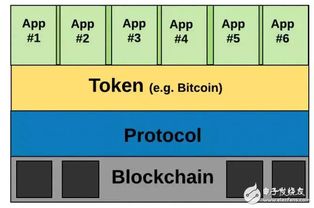Introduction to Bitcoin's Consensus Mechanism

Bitcoin, the pioneering cryptocurrency, introduced the world to the concept of a decentralized digital currency. At the heart of Bitcoin's architecture lies its consensus mechanism, a critical process that ensures the integrity and security of the network. This article delves into the workings of Bitcoin's consensus mechanism, exploring its significance and the challenges it addresses.
The Role of Consensus Mechanism

The consensus mechanism is a protocol that allows a decentralized network to agree on the state of a distributed ledger. In the case of Bitcoin, this ledger is the blockchain, which records all transactions made in the network. The consensus mechanism is essential because it prevents fraudulent activities, such as double-spending, and ensures that all participants have a consistent view of the ledger.
Proof of Work (PoW)

Bitcoin employs a consensus mechanism known as Proof of Work (PoW). In this system, miners compete to solve complex mathematical puzzles using their computational power. The first miner to solve the puzzle gets the right to add a new block of transactions to the blockchain. This process is known as mining, and the miner is rewarded with Bitcoin for their efforts.
How PoW Works

When a transaction occurs on the Bitcoin network, it is broadcast to all nodes in the network. Miners then gather these transactions into a block and attempt to solve the PoW puzzle. The puzzle involves finding a number that, when hashed with the block's data, produces a hash value that meets certain criteria. This process is computationally intensive and requires significant amounts of electricity.
The Challenges of PoW

While PoW has been successful in securing the Bitcoin network, it is not without its challenges. The most significant issues include:
Energy Consumption: The mining process is energy-intensive, leading to concerns about the environmental impact.
Centralization: As mining requires significant computational power, large mining operations can gain disproportionate influence over the network.
Scalability: The PoW mechanism can slow down the transaction processing speed, limiting the network's scalability.
Proof of Stake (PoS) as an Alternative

In response to the challenges of PoW, researchers and developers have proposed alternative consensus mechanisms, such as Proof of Stake (PoS). In a PoS system, validators are chosen to create new blocks based on the number of coins they hold and are willing to
